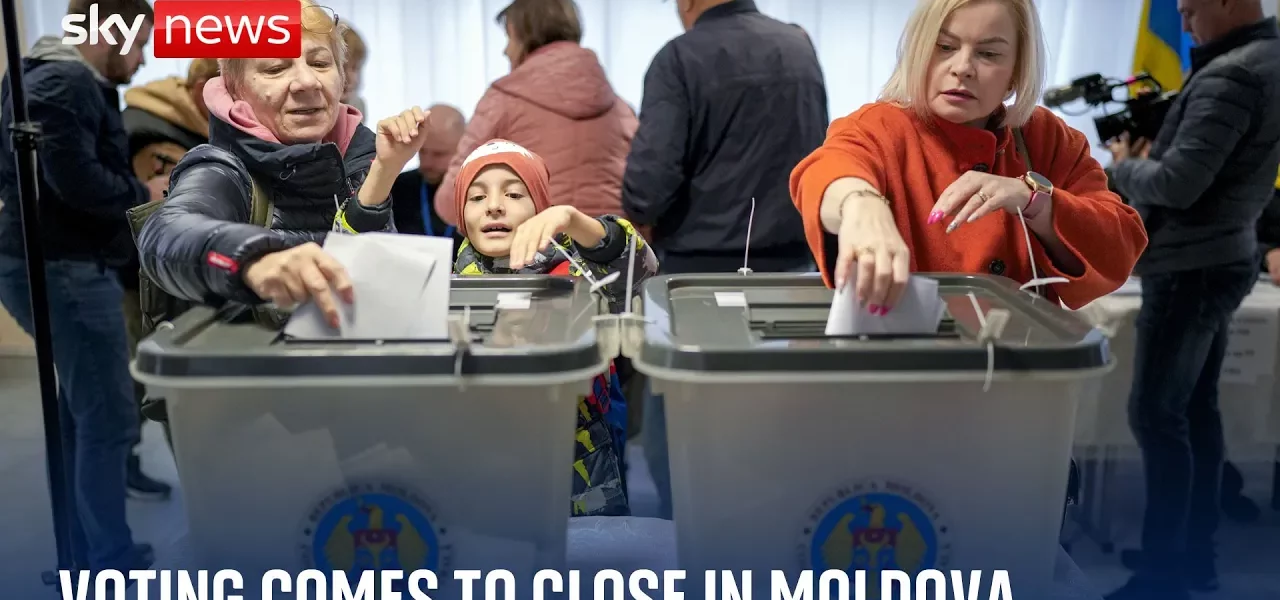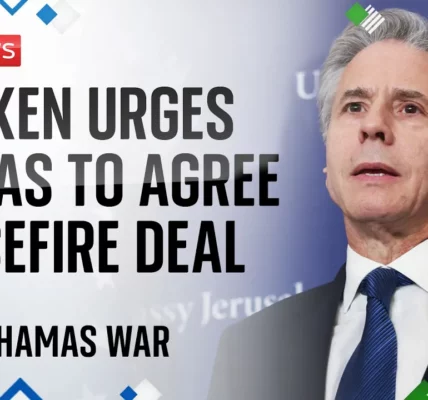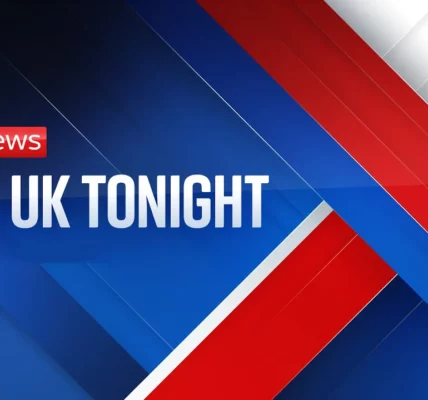Moldova’s Historic Election: A Choice Between Europe and Russia

This article provides a comprehensive overview of Moldova’s recent presidential election and EU referendum, highlighting the significant choices facing voters and the potential impact on the country’s future relations with Europe and Russia.
Introduction
The recent presidential election and EU referendum in Moldova marked a pivotal moment in the nation’s history. Millions of Moldovans took to the polls to decide not only their next leader but also the trajectory of their country’s international affiliations. This election posed a critical question: Should Moldova strengthen its ties with the European Union or align more closely with Russia? The stakes were particularly high, as the outcomes could significantly influence the country’s political landscape, economic prospects, and social fabric.
The Prelude to the Election
Leading up to the election, the political atmosphere in Moldova was charged with tension and uncertainty. The pro-Western incumbent president advocated for a future aligned with the EU, emphasizing the importance of this referendum in shaping Moldova’s destiny.
The Campaign for EU Integration
Supporters of EU integration argued that enshrining this goal in the constitution would create a stronger legal framework to resist pro-Russian influences. The campaign was characterized by a desire for a peaceful and prosperous Moldova, free from external manipulation.
Concerns Over Russian Interference
As the election approached, allegations surfaced regarding potential Russian interference aimed at undermining Moldova’s pro-European aspirations. Reports indicated attempts to bribe voters, raising serious concerns about the integrity of the electoral process.
- Accusations of 130,000 voters being bribed.
- Links to Russian businessman Elan Shaw.
- Claims of disinformation campaigns funded by Moscow.
Voter Sentiments and Perspectives
The sentiments of Moldovan voters varied widely, reflecting the country’s complex history and socio-political landscape. First-time voter Vlad expressed optimism about EU membership, citing potential benefits such as better wages and living conditions.
Arguments for EU Membership
Proponents of joining the EU highlighted several advantages, including:
- Enhanced economic opportunities.
- Improved living standards.
- Stronger democratic institutions.
Opposition to EU Integration
Conversely, some voters like Valentina and Gregory expressed skepticism towards EU membership. They voiced concerns about life in the EU compared to their experiences in the Soviet Union, indicating a preference for the familiarity of Russian ties.
- Valentina stated, “I’ve seen how people live in the European Union and I don’t like it.”
- Gregory remarked on the perceived superiority of life under Soviet governance.
The Election Results and Their Implications
As the votes were counted, the results highlighted a significant divide in public opinion regarding Moldova’s future direction. The election results, expected to be confirmed shortly, would not only determine the presidency but also signal the public’s stance on EU integration versus Russian influence.
Anticipated Outcomes
The anticipation surrounding the election results underscored the deep-rooted divisions within Moldovan society. A pro-European victory could solidify Moldova’s path towards the EU, while a win for pro-Russian candidates could reverse recent progress and pull the country back into Moscow’s sphere of influence.
Conclusion
The recent presidential election and EU referendum have brought to the forefront critical questions regarding Moldova’s national identity and future. As the country navigates its path between Europe and Russia, the choices made by its citizens will have lasting implications for generations to come. It is essential for Moldovans to engage in the democratic process and make informed decisions that reflect their aspirations for a peaceful and prosperous future. For more insights on Moldova’s political landscape, explore our related articles on Eastern European politics and the impact of EU relations.
“`




